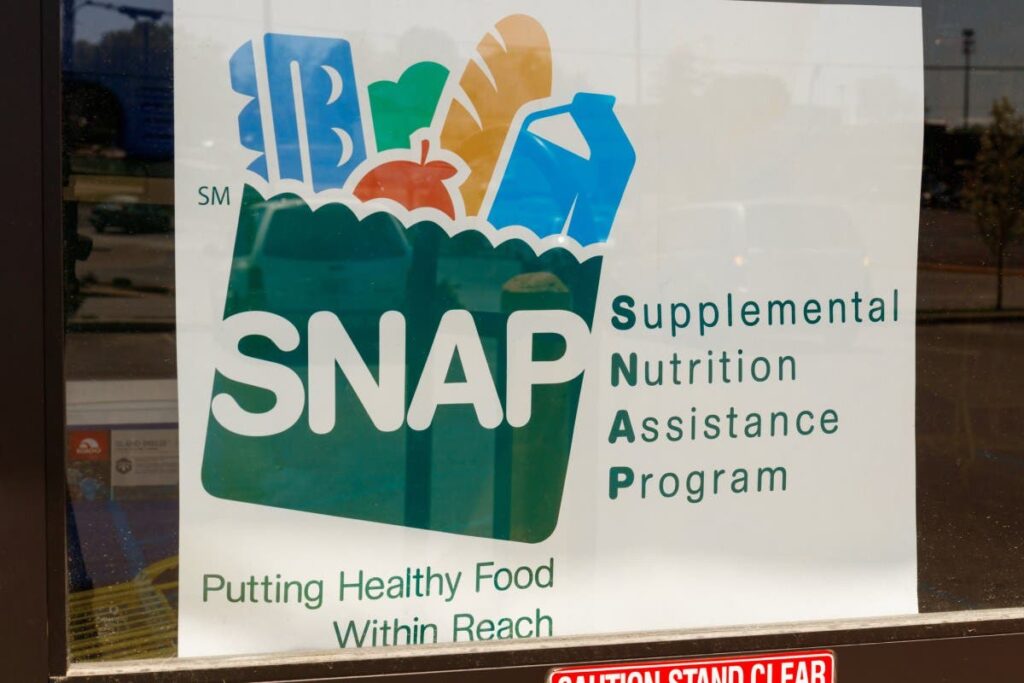The U.S. Department of Agriculture (USDA) has set a deadline for states to comply with expanded work requirements for SNAP benefits.
Why It Matters
Earlier this year, Congress passed the One Big Beautiful Bill Act (OBBBA), which revised Supplemental Nutrition Assistance Program (SNAP) work requirements by narrowing eligibility for exemptions from the three-month time limit.
This limit applies to able-bodied adults without dependents (ABAWDs). These individuals can receive SNAP benefits for only three months within a three-year period unless they meet certain work requirements.
About 42 million people across the country receive SNAP benefits, which help low- and no-income households afford groceries. While SNAP benefits are paid for by the federal government, states are responsible for managing and administering benefits.
What To Know
The USDA memo, sent to all state agencies on October 3, orders states to begin complying with new work requirements for ABAWDs from November.
The new rules revise who qualifies for exemptions from SNAP’s three-month time limit for ABAWDs. The upper age limit for exemption has been raised to include individuals up to age 65, up from 59.
The exemption for caring for a dependent child now applies only to parents or guardians of children under 14, reduced from under 18.
Other exemptions for homeless individuals, veterans, and young adults who aged out of foster care at 24 or younger have been removed. Those who are pregnant or unable to work due to a physical or mental condition remain exempt from the work requirements. The OBBBA also establishes some new exceptions for native populations.
The Trump administration has argued work requirements will reduce dependency on federal welfare programs and will help save taxpayer dollars. Critics, including Democrats and food welfare experts, have said they will create additional barriers to accessing welfare for America’s neediest.
What People Are Saying
In a joint opinion piece for The New York Times published in May, Health Secretary Robert F. Kennedy Jr., Centers for Medicare & Medicaid Services administrator Dr. Mehmet Oz, Agriculture Secretary Brooke Rollins, and Housing Secretary Scott Turner said: “Establishing universal work requirements for able-bodied adults across the welfare programs we manage will prioritize the vulnerable, empower able-bodied individuals, help rebuild thriving communities and protect the taxpayers.
“Our agencies are united in a very straightforward policy approach: Able-bodied adults receiving benefits must work, participate in job training or volunteer in their communities at least 20 hours a week. Limited exceptions will be made for good cause, like caring for young children and health issues, but the principle is clear—those who can work, should.”
The Food Action and Research Center said in response to the memo: “SNAP is one of the most effective anti-poverty and pro-growth programs in the country. Every dollar in SNAP benefits generates up to $1.80 in local economic activity. Cuts to SNAP are cuts to local economies, especially in rural areas where small grocers, farmers, and local businesses depend on SNAP purchases to survive. Rural counties already face higher rates of poverty and food insecurity than the national average, with one in seven rural households relying on SNAP.
“We call on Congress and the administration to reverse these damaging provisions, restore flexibility to states, and reaffirm our nation’s commitment to protecting the right of every American to put food on the table. This is not about politics; it is about people, and it is about what kind of country we choose to be.”
Brittany Christenson, CEO of AidKit, a public benefit corporation that helps government agencies and nonprofits administer aid programs, told Newsweek: “People may lose benefits not because they don’t want to work, but because they can’t meet documentation or compliance requirements. Many families facing real but invisible barriers to work need additional support in order to achieve lasting stability and self-sufficiency.”
What Happens Next
The USDA memo outlines that all states must comply with the OBBBA mandated work requirements starting from November 1.
Read the full article here














